Farzad Ahmed
Bengali License Plate Recognition: Unveiling Clarity with CNN and GFP-GAN
Dec 17, 2023



Abstract:Automated License Plate Recognition(ALPR) is a system that automatically reads and extracts data from vehicle license plates using image processing and computer vision techniques. The Goal of LPR is to identify and read the license plate number accurately and quickly, even under challenging, conditions such as poor lighting, angled or obscured plates, and different plate fonts and layouts. The proposed method consists of processing the Bengali low-resolution blurred license plates and identifying the plate's characters. The processes include image restoration using GFPGAN, Maximizing contrast, Morphological image processing like dilation, feature extraction and Using Convolutional Neural Networks (CNN), character segmentation and recognition are accomplished. A dataset of 1292 images of Bengali digits and characters was prepared for this project.
Explainable Cost-Sensitive Deep Neural Networks for Brain Tumor Detection from Brain MRI Images considering Data Imbalance
Aug 01, 2023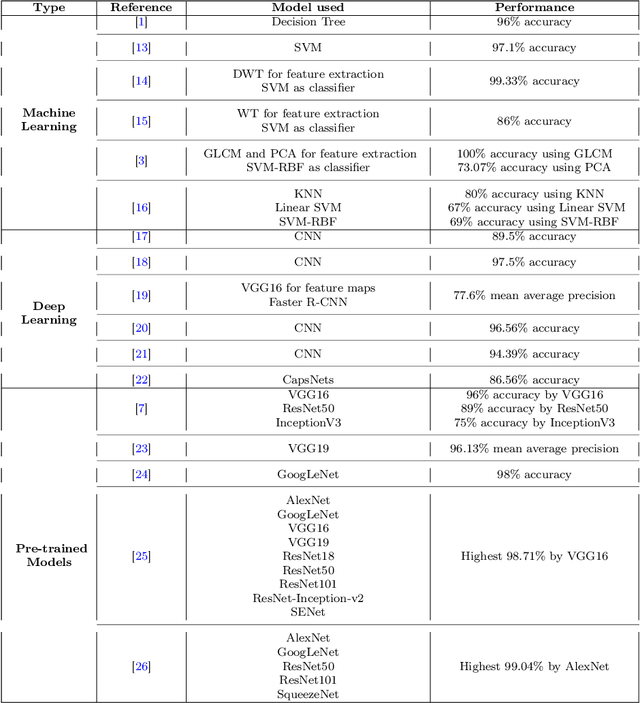
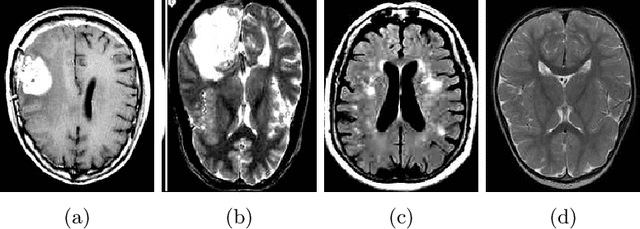

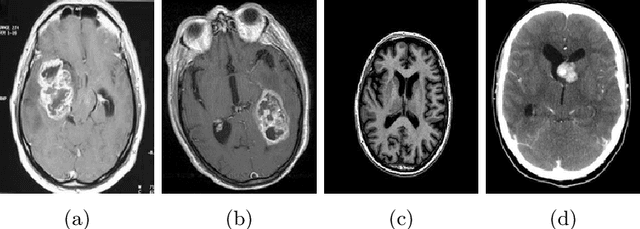
Abstract:This paper presents a research study on the use of Convolutional Neural Network (CNN), ResNet50, InceptionV3, EfficientNetB0 and NASNetMobile models to efficiently detect brain tumors in order to reduce the time required for manual review of the report and create an automated system for classifying brain tumors. An automated pipeline is proposed, which encompasses five models: CNN, ResNet50, InceptionV3, EfficientNetB0 and NASNetMobile. The performance of the proposed architecture is evaluated on a balanced dataset and found to yield an accuracy of 99.33% for fine-tuned InceptionV3 model. Furthermore, Explainable AI approaches are incorporated to visualize the model's latent behavior in order to understand its black box behavior. To further optimize the training process, a cost-sensitive neural network approach has been proposed in order to work with imbalanced datasets which has achieved almost 4% more accuracy than the conventional models used in our experiments. The cost-sensitive InceptionV3 (CS-InceptionV3) and CNN (CS-CNN) show a promising accuracy of 92.31% and a recall value of 1.00 respectively on an imbalanced dataset. The proposed models have shown great potential in improving tumor detection accuracy and must be further developed for application in practical solutions. We have provided the datasets and made our implementations publicly available at - https://github.com/shahariar-shibli/Explainable-Cost-Sensitive-Deep-Neural-Networks-for-Brain-Tumor-Detection-from-Brain-MRI-Images
An Empirical Studies on How the Developers Discussed about Pandas Topics
Oct 07, 2022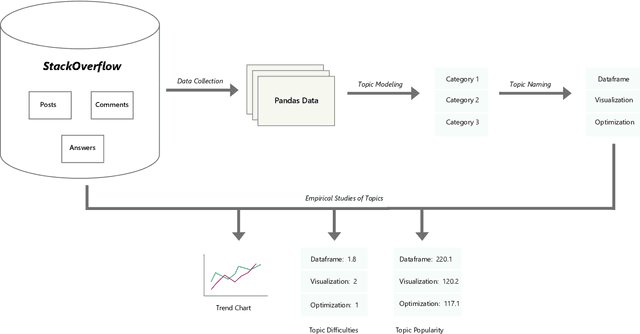
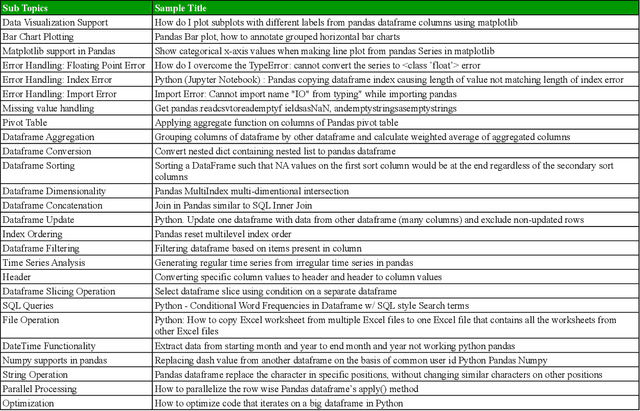
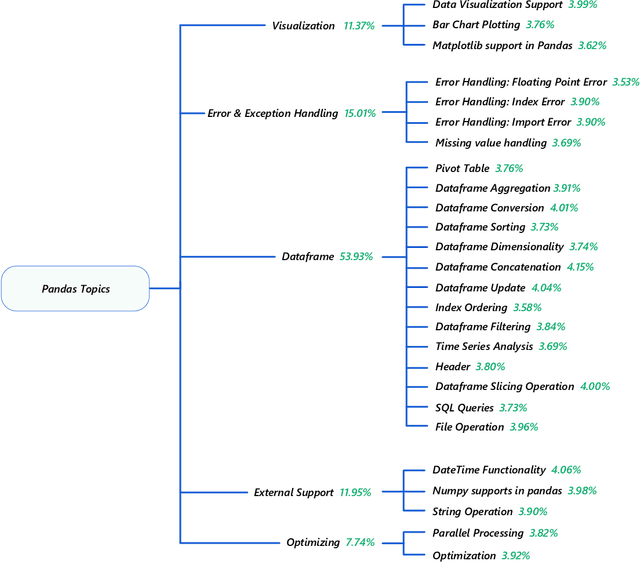
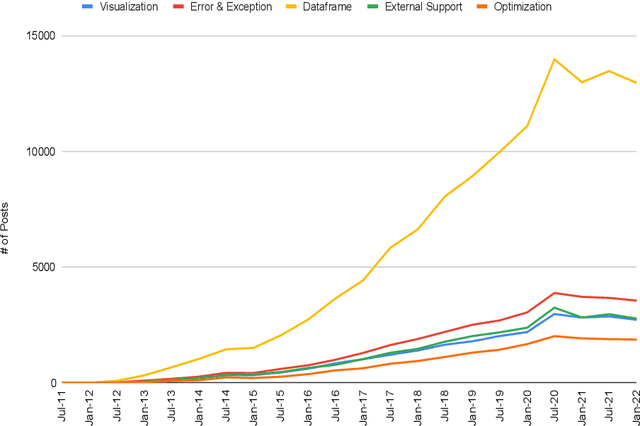
Abstract:Pandas is defined as a software library which is used for data analysis in Python programming language. As pandas is a fast, easy and open source data analysis tool, it is rapidly used in different software engineering projects like software development, machine learning, computer vision, natural language processing, robotics, and others. So a huge interests are shown in software developers regarding pandas and a huge number of discussions are now becoming dominant in online developer forums, like Stack Overflow (SO). Such discussions can help to understand the popularity of pandas library and also can help to understand the importance, prevalence, difficulties of pandas topics. The main aim of this research paper is to find the popularity and difficulty of pandas topics. For this regard, SO posts are collected which are related to pandas topic discussions. Topic modeling are done on the textual contents of the posts. We found 26 topics which we further categorized into 5 board categories. We observed that developers discuss variety of pandas topics in SO related to error and excepting handling, visualization, External support, dataframe, and optimization. In addition, a trend chart is generated according to the discussion of topics in a predefined time series. The finding of this paper can provide a path to help the developers, educators and learners. For example, beginner developers can learn most important topics in pandas which are essential for develop any model. Educators can understand the topics which seem hard to learners and can build different tutorials which can make that pandas topic understandable. From this empirical study it is possible to understand the preferences of developers in pandas topic by processing their SO posts
 Add to Chrome
Add to Chrome Add to Firefox
Add to Firefox Add to Edge
Add to Edge